What Explains Trump’s Popularity?
Polls of Wisconsin voters and other data provides disturbing clues.
Donald Trump’s continued success in the polls has surprised many observers and horrified the Republican establishment. I’ve examined various data to help explain his rise.
1. What can we learn from the Marquette poll?
Consistent with other states, Trump leads among the numerous candidates for the Republican nomination in Wisconsin. Surprisingly the poll did not show a gender gap in Trump’s support, something other polls have found. (This could easily be a sampling error. The overall sample is divided roughly in half to get likely Republican voters; it is halved again to get women; and finally allocated among the candidates. After all this slicing and dicing the number of women in the sample choosing Trump as first choice is down to about 16.)
The small group choosing Trump as their second choice actually puts him behind several other GOP candidates when first and second choices are totaled. This suggests his potential primary vote may be capped at around one third of the votes. Still, one-third of Republican voters is a substantial part of the American electorate and it is worth exploring their motivations.
In the following analysis, I have omitted those without an opinion. Normally this decision could be problematic, particularly this early in a campaign. With Trump, however, almost everyone (96 percent) is willing to express an opinion.
Even though Trump has more supporters than any other candidate, a majority of Republicans view him unfavorably. This creates an unusual challenge in using the polls to profile Trump supporters: rather than identify groups who view him favorably, one must search out groups who regard him less unfavorably than does the population as a whole. Presumably his supporters would be found in these groups. Most supporters are Republicans or independents who lean Republican. Even there, the majority view him unfavorably as the next chart shows.
As the next chart shows, there is a gender gap in Trump’s favorability ratings: 35 percent of men regard him favorably, compared to 25 percent of women. This might seem to conflict with the lack of a gender gap among Trump supporters. Like men supporting Trump, they may view his comments as refreshing candor.
Support for Trump declines with the voter’s education, as shown on the next plot.
There is also an age effect. Support is particularly low among those under 30. It peaks with the 30-44 group and declines thereafter.
Although there is a fall-off in favorability among blacks and Hispanics, it’s less than I would have expected, particularly among Hispanics considering Trump’s comments on immigrants.
Trump supporters seem to be more rural than urban or suburban.
The MU poll results by regions is consistent with evidence that Trump is strongest in rural areas. He does most poorly in Milwaukee and its suburbs and the Madison area, better in Appleton and Green Bay, and best in the rest of Wisconsin.
A number of other factors did not seem to have a large effect on attitudes towards Trump. These include income and religion.
These results are consistent with polls in other states. As elsewhere, Wisconsin residents favorable to Trump are more likely to be male, white, less educated, and live in rural areas. In other words, they look an awful lot like the grandchildren and great grandchildren of the core supporters of the New Deal.
2. What motivates the Trump supporters?
The Marquette poll, and others, help explain where the Trump voters can be found. Unfortunately, it tell little about what motivates them. Most polls, including Marquette’s, are not set up to allow analysis of how Trump supporters differ from, say, other Republican voters on a specific issue.
An NBC poll found that Trump Republicans are largely conservative, but are more likely than other Republicans “to support the Confederate flag, own a gun, think the government should support traditional values and believe that black Americans who can’t get ahead in society are personally responsible for their own condition,” but the differences were not great. The two areas where they differed the most were their greater opposition to immigrants and a reluctance to treat abortion as a make-or-break issue.
Trying another approach, Atlantic magazine columnist Conor Friedersdorf asked readers who support Trump to write explaining why. He published thirty of the responses. The responses range for Trump’s entertainment value to fears about illegal immigration. Several describe their choice as between Trump and Bernie Sanders. Others point to Trump’s business experience, that he got things done. Political correctness was mentioned repeatedly, moving Trump’s boorishness from a liability to an asset. If there is any theme it is unhappiness with business as usual.
3. What does Trump tell us about his supporters?
Trump’s campaign has stressed several themes: opposition to immigration, that America has fallen on hard times, as expressed in the campaign title: “Make America Great Again,” and that he is a blunt teller of truths who is not beholden to donors.
Trump is a prolific user of Twitter. Most of his tweets are about him: how big his crowds are and how well he is doing in the polls. He famously attacks icons of the right wing: Fox News, Eric Erickson and Glenn Beck, for example. These feuds seldom revolve around policy disagreements—their crime is disrespecting Trump.
At one point in his Twitter comments, Trump suggested he might break with current Republican economic orthodoxy that prosperity depends on taxing rich folks less. He tweeted: “The hedge fund guys (gals) have to pay higher taxes ASAP. They are paying practically nothing. We must reduce taxes for the middle class!”
But any expectation that Trump would propose reversing the growing inequality gap were dashed with the release of his tax proposal. As the chart shows, the richest 1 percent would get one-third of the cut and the top 20 percent would get two-thirds, leaving one-third for the other 80 percent of Americans.
In addition the Trump proposal would result in a huge increase in the deficit. Think tanks on the right and left quickly added it up and found costs exceeding 10 trillion dollars over 10 years.
In the end, the difference between Trump and the other Republican candidates is more about style than substance.
4. What is the driving force behind Trump supporters?
Trump seems to tap into two sentiments among Americans: a sense of unfairness and a dread of impending doom. The first is illustrated by a passage from one of the Trump supporters quoted in the Atlantic:
… Trump embodies the frustration and rage of the white middle class. This is his main support base and is an ever shrinking group that no longer feels they have a voice. Politicians pay lip service to the middle class but spend no time helping them. Black lives matter more and illegal immigrants who break the law get a free pass.
It’s not hard to find evidence to support that viewpoint. A quantitative analysis of Democratic Party platforms found the agenda had shifted away from general social welfare to policies based on race, ethnicity, gender, and sexual orientation in the second half of the last century.
This sense of unfairness is combined with a sense of doom, a belief that time is running out to save the country they know. Peter Wehner quotes Rush Limbaugh, on the day after Barack Obama’s re-election, as saying, “I went to bed last night thinking we’re outnumbered. I went to bed last night thinking all this discussion we’d had about this election being the election that will tell us whether or not we’ve lost the country — I went to bed last night thinking we’ve lost the country.”
Some on the left have certainly done their part to nurture that sense of doom, stressing how changing demographics will soon make Republican victories a thing of the past. But even political neutral efforts to promote diversity can reinforce this sense of doom.
An advertorial in the National Journal entitled The Economic Impact of Changing Demographics in the United States is an example. It reports on a conference sponsored by MasterCard on diversity and its advantages. (While at first glance the material looks just like a normal National Journal article, fine print makes it clear that it is “Sponsor Content,” written by the sponsor, which turns out to be MasterCard.)
Perhaps to make its point more dramatic, the piece begins with some dramatic statistics: “There are 147 Latinos, 43 Asian-Americans, 41 African-Americans, and six Caucasians born every hour in the United States.” In other words, out of every 100 babies, fewer than three are “Caucasian” (presumably meaning white and non-Hispanic). If one believes this, white Americans have opted for extinction. Pretty unsettling, particularly if one is already inclined towards the Trump viewpoint.
The claim is also very wrong. The chart below compares the births claimed in the article to the Census Bureau’s estimate for births in 2014, which shows Caucasians still have by far the most births.
The source of the erroneous MasterCard statistics is unclear. However, the fact that no one recognized their implausibility is itself a reflection of how much the demographic transition has been oversold.
It appears unlikely that Trump will be elected President or even win the Republican nomination. It is alarming, however, that so many of our fellow citizens have given up on America. It is even more alarming that some on the left are willing to promote this alienation.
Data Wonk
-
Life Expectancy in Wisconsin vs. Other States
 Dec 10th, 2025 by Bruce Thompson
Dec 10th, 2025 by Bruce Thompson
-
How Republicans Opened the Door To Redistricting
 Nov 26th, 2025 by Bruce Thompson
Nov 26th, 2025 by Bruce Thompson
-
The Connection Between Life Expectancy, Poverty and Partisanship
 Nov 21st, 2025 by Bruce Thompson
Nov 21st, 2025 by Bruce Thompson


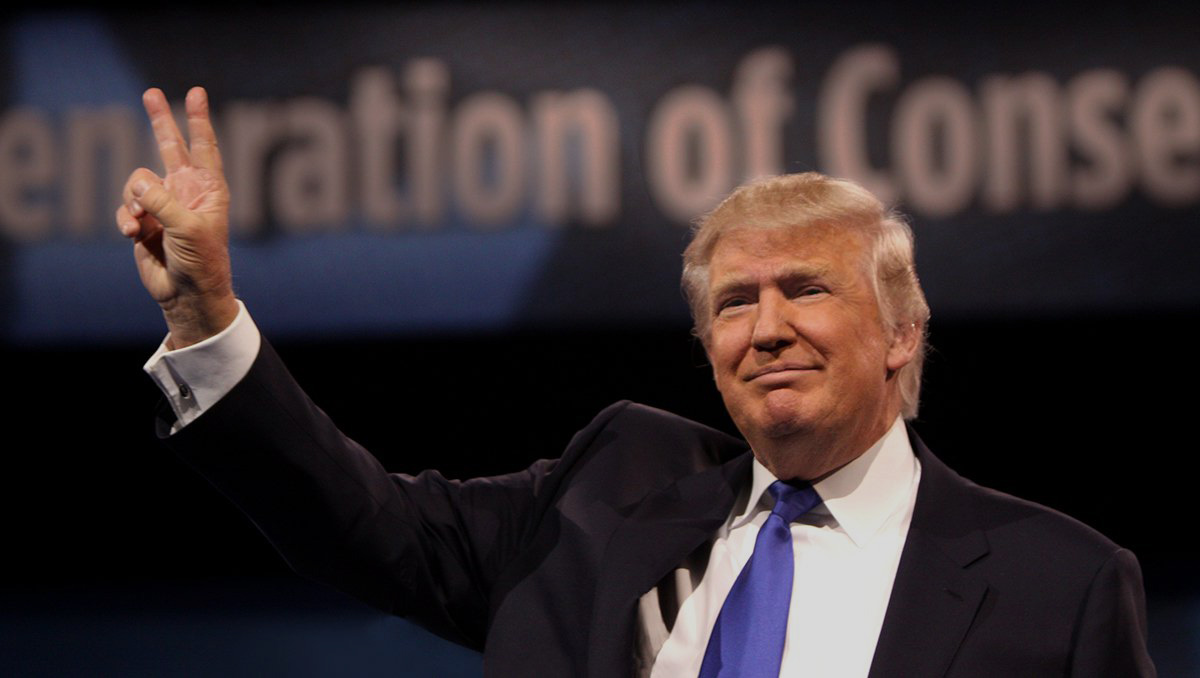
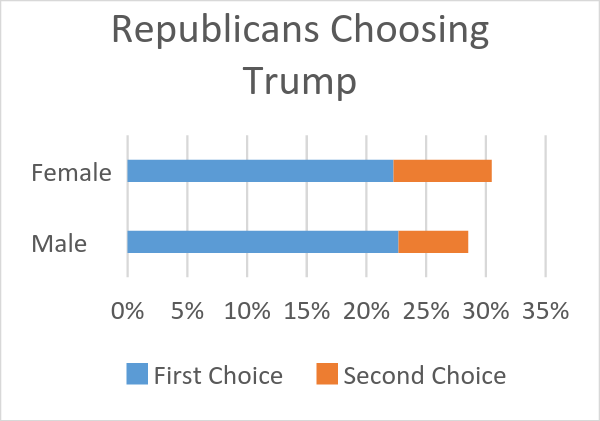
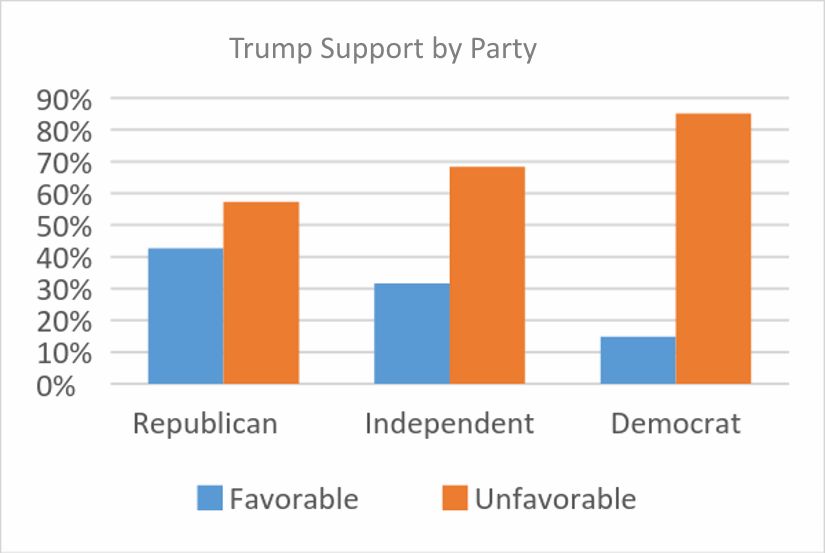
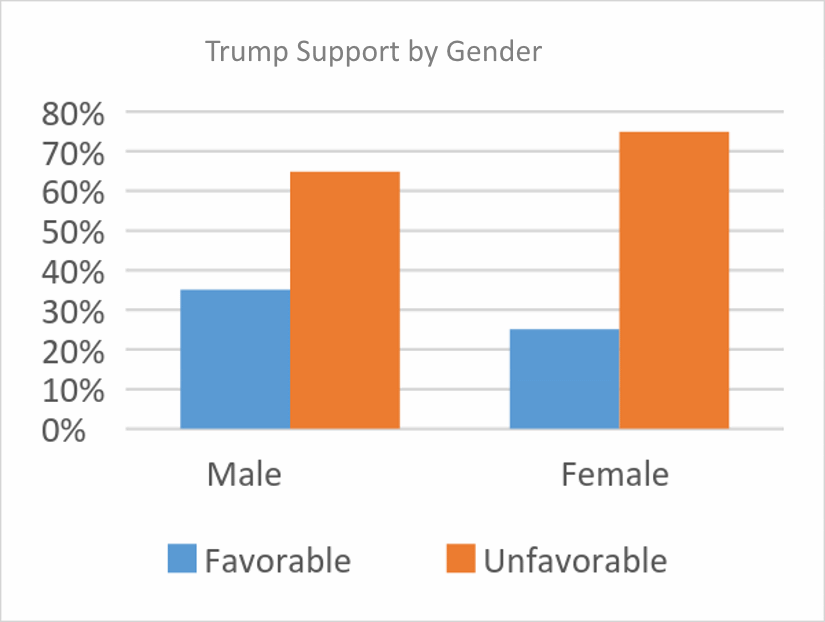
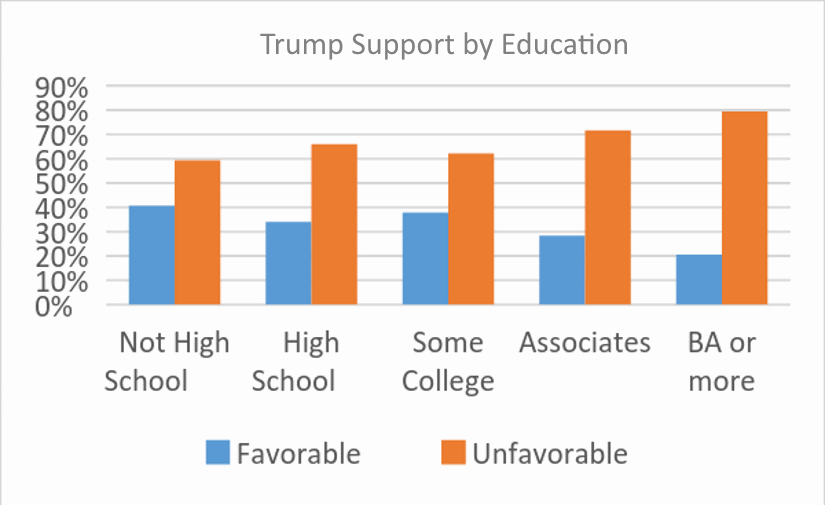
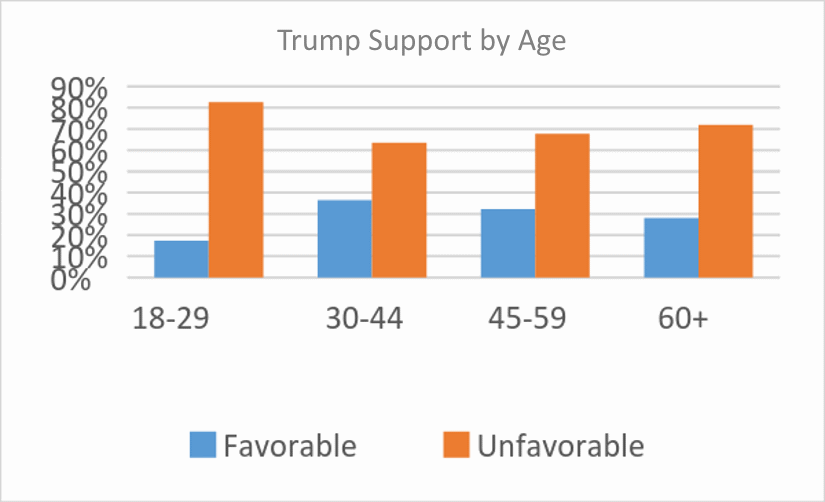

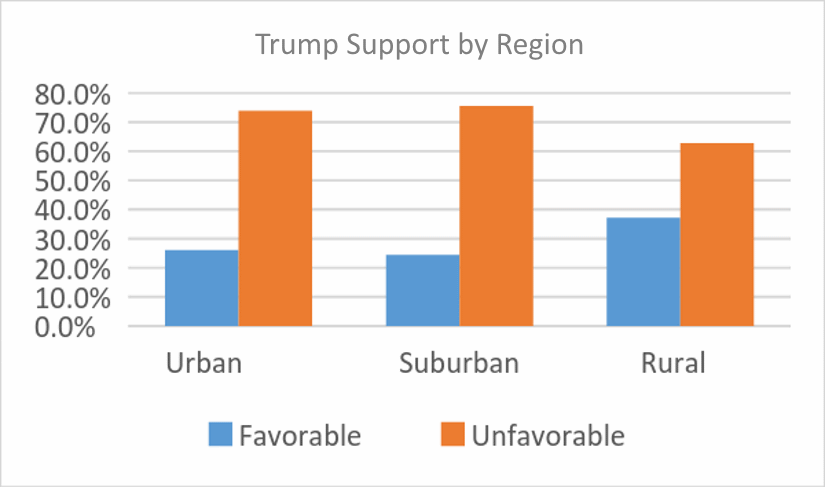


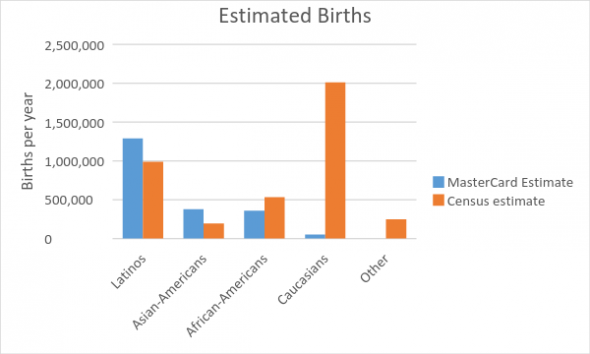

















Who should Repub. vote for other than Trump and why? The other options are terrible. So for all the Trump haters out there, make a case for the Bush’s, Rubio’s and Fiorini’s (sp?) out there. I’m all ears.
So Trump is worthy because the other options are just so terrible (and they are, I agree), or he’s worthy because he would actually make a fine president and leader of the free world?
This:
”Trump is worthy because the other options are just so terrible (and they are, I agree)”
At the end of the day you gotta vote for somebody
I should add Im not even a Trump supporter. But pretend I was. Convince me to vote for one of the other candidates based on why I should vote FOR them rather than AGAINST Trump
Ah, um, let’s see. Vote for Jeb Bush because he isn’t as crazy as Ted Cruz, Ben Carson, Carly Fiorina, or, OK, all of the GOP candidates?
I unfortunately expected an answer like that…I do find it odd you picked Jeb though. Considering HC is a lock on the Dem side, it seems Dem voters prefer establishment candidates for some reason, which I find odd. How the “liberal” party can anoint someone who is an ex board member at Walmart, $400k speeches at Goldman Sachs, and a war-hawk is a bigger mystery to me than Trumps rise in the polls. It seems to be the reasoning you used in answering my previous question of “shes less crazy than so and so”… And Rome burns…
Uh I didn’t say anything HC. I said Jeb is less crazy because there’s no strong case for voting against Trump and for the other candidates, because they are all a joke. Pointing that out has nothing to do with HC. You are putting words in my mouth. Please don’t do that. Very uncool Will.
No crazies in the Democrat’s debate. Yes, the have an uphill battle with HC running, but at least they’re serious (though Chaffee seems in over his head).
Whatever happens, Bernie Sanders has changed the debate, reframed the agenda of what is important–as opposed to just what is expedient.
The GOP refuses to talk about how to deal with hollowed-out middle class, climate change, serious immigration policies.
David Brooks analyzes why traditional conservatism died and was replaced by bombast and buffoonery. This will not be an easy problem to solve.
http://www.nytimes.com/2015/10/13/opinion/the-republicans-incompetence-caucus.html?_r=0
Is anyone surprised that the largest amount of Trump supporters are low information racists?
Bruce, I find your data slicing and dicing to be very thorough, but be careful that you are equating “favorable opinion” with “support.” These are not necessarily the same. There can and probably are plenty of voters who have an unfavorable opinion of a candidate but may vote for him/her anyway due to party loyalty, pragmatism or “lesser of two evils” logic.
It’s also entirely possible that some Republicans support Donald Trump not because they like him but because they think he could win a general election. Some might even vote for him out of fear he would go renegade and mount an independent / third party run if he doesn’t earn the Republican nomination. The sense of impending doom among a certain electorate that you mention might fuel either one of these sentiments.
How many people are just like cuss it I’ll tell a pollster I’m voting for Trump even though I have no intention of actually casting a ballot for him? I suppose it’s hard to really quantify that, but I bet it’s happening.
Some of us are so disillusioned with the political power elite class that we will say anything and everything to get that message across to whomever is asking us. Trump, Carson, Fiorina and Sanders are political outsider/outliers. Seems to me that if you total the support for even THREE of them, you would have a majority of the voters in this country, with the conventional (“traditional background”) candidates, combined, trailing them. If Elizabeth Warren were running and if you were to grant her admission to the “outlier” category, I contend that she plus the other four mentioned above would (IMO) get about 2/3rds of the voters’s support.
he is so much better looking than all the dems.